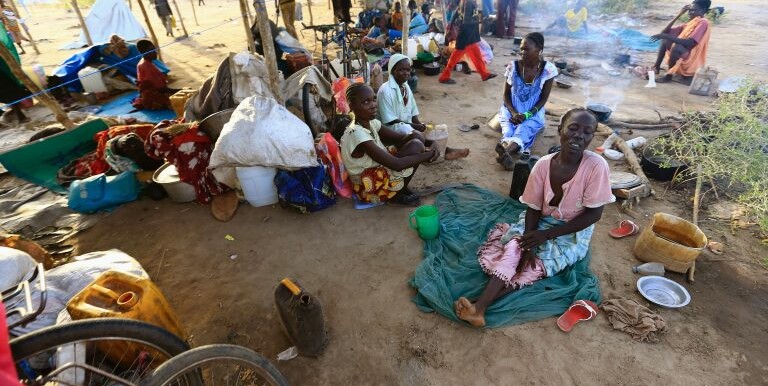The United Nations Commission on Human Rights in South Sudan has implored South Sudanese political leaders to seize the opportunity to reset the country toward peace, democratic transformation, and prosperity after nearly five years of delays in the implementation of the 2018 Revitalized Peace Agreement.
Two members of the commission, Barney Afako, and Andrew Clapham are concluding an eleventh country visit, from 14 to 18 February.
“We always appreciate the opportunity to visit South Sudan, and to have meaningful discussions with a range of people, to learn more about the human rights situation and prospects for the credible conclusion of this transition period,” said Commissioner Barney Afako. “The suffering across the country remains immense. South Sudanese women and girls continue to face unspeakable sexual violence. Political leaders must reorient their priorities and work together to put an end to this needless violence and protect the human rights of South Sudanese.”
“Without a change of approach, the transition will falter,” he emphasized.
Meanwhile, Commissioner Andrew Clapham said they were still shocked by the continued attacks on civilians.
“Our Commission has documented human rights violations in South Sudan for many years, but we were still shocked by the sexual violence and continuing attacks against civilians,” he said. “The accounts from survivors are horrific. Many people the Commission has met have experienced attacks over and over again. At the same time, people responsible for crimes walk free.”
The Commissioners visited the capital Juba, and Upper Nile State where the UN runs a protection of civilians (POC) site that accommodates tens of thousands of new arrivals fleeing violence, the statement said.
According to the Commission, organizations, and agencies providing humanitarian support in the areas recounted their struggle to provide the required assistance to the large number of people seeking shelter.
“In the past year, the Commission has documented widespread attacks against civilians in several states, including southern Unity State where Government officials led the attacks. Conflicts in Upper Nile State and northern parts of Jonglei State have involved multiple armed groups, with minimal response from the State, despite months of widespread attacks against the civilian population,” the statement read. “Extrajudicial killings also continued, implicating senior State officials, who have enjoyed impunity even where the crimes have been caught on camera. Civil society leaders and other observers told the Commissioners that political and civic space in the country has continued to shrink.”
Afako said that on a visit to South Sudan one year ago, they warned that the country was at a tipping point, given the limited time left to implement critical parts of the peace agreement.
“Although the transition period has now been extended, there is still an enormous amount of work to do to advance the peace process,” he said. “South Sudanese are desperate to see greater energy and determination among their leaders to address human rights.”
The Commission will present its report on the human rights situation in South Sudan to the UN Human Rights Council in March 2023, in Geneva.




